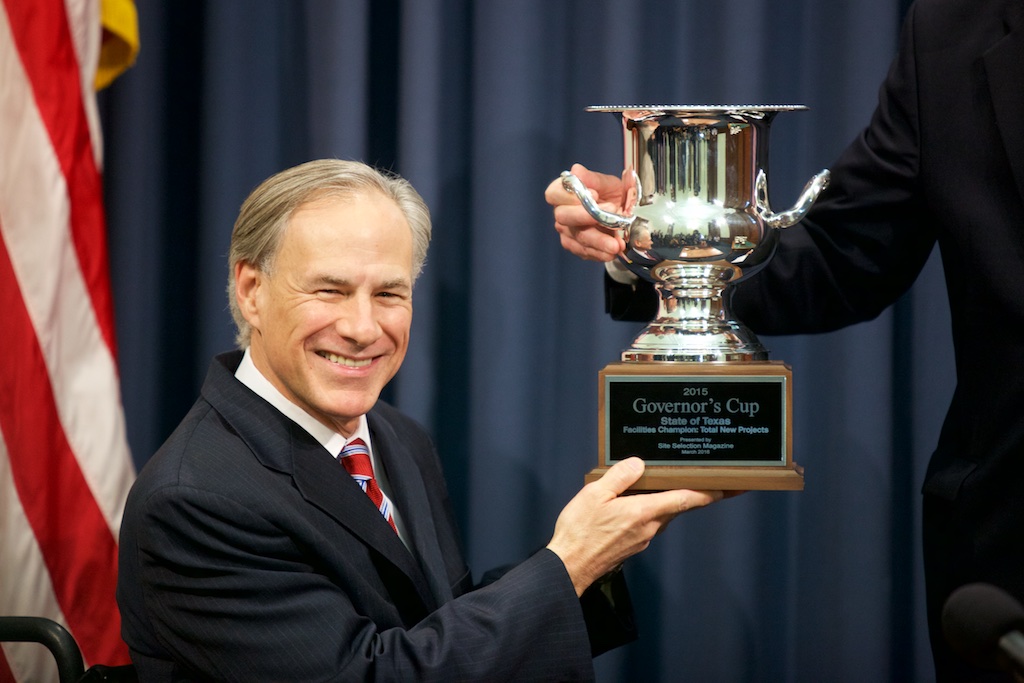
Mike Collier Wants Texans to Give Up Red Meat
In his rematch against the state’s far-right lieutenant governor, this Democratic underdog hopes pragmatism can break through to the electorate.

In 2018, Texas’ ultraconservative Lieutenant Governor Dan Patrick barely bothered to run for reelection. His campaign launch amounted to flying a charter jet to municipal airports across small-town Texas, stopping just long enough to do an interview with a local TV station. Mostly, he just went on Fox News and hung out with Donald Trump. Despite the attempts of his Democratic opponent Mike Collier—a corporate accountant who’d previously ran for Texas comptroller—Patrick ignored him.
Despite his confidence, Patrick was reelected in 2018 by just 5 percentage points, losing ground in the suburbs and showing weakness even in the deep-red expanses of rural Texas. In 171 counties, Collier actually outperformed then-Senate candidate and political star Beto O’Rourke—besting the latter in rural Texas 25.6 to 24 percent. Collier attributed his modest inroads to Patrick’s radicalism and his own incessant focus on bread-and-butter issues like public education, teacher pay, and property tax reform.
“I think people respond to me because they’re looking for somebody other than Dan Patrick,” Collier told the Observer in an interview last month. “Dan Patrick won’t work on real issues. He’s all about culture wars … and it’s taken us to a very, very bad place.”
Collier says his ability to appeal to crossover voters in rural Texas was a key reason he decided to challenge Patrick again this year. “I saw responsiveness to our message in Republican-controlled areas that we hadn’t seen before,” Collier said. “Basically I go out there: no nonsense, pretty pragmatic, a guy who came out of the business world talking about public education, property taxes, talk about water, the electric grid.”
“Dan Patrick won’t work on real issues. He’s all about culture wars … and it’s taken us to a very, very bad place.”
Now, Collier is hoping to further drive open that wedge and topple Patrick from his perch. He touts his experience as a former corporate accountant and energy industry executive who was a Republican until he grew increasingly disenchanted with the party in the late 2000s. For the past eight years as a statewide candidate, Collier has stressed the need to return competence and pragmatism to the state. After his failed bid for comptroller in 2014 he wrote a book titled Out of Comptrol: A Converted Democrat’s Improbable Quest to Save Texas Politics.
In his third statewide bid, Collier is doubling down on his GOP priors in an attempt to appeal to what he hopes is a significant pool of conservatives, moderates, and independents who are discontented with Patrick and might swap parties like he once did. The Houston suburbanite became a big supporter of fellow moderate and former Houston Mayor Bill White’s failed gubernatorial bid against Rick Perry in 2010.
This messaging to the middle is a page out of the red-state Democrat playbook that some party strategists have long believed is the best way to break through in the conservative South.
“I used to be a Republican and I know a lot of good Republicans,” Collier said in a recent campaign ad, “but Dan Patrick ain’t one of them.” He often introduces himself as a “businessman, energy expert, and former Republican” and pledges to stand up to both parties “if they’re soft on crime or securing the border” or trample on women’s abortion rights.
Over the course of his three statewide campaigns, “Collier has really learned how to maneuver himself in the Texas electorate and the Democratic Party could learn something about how he’s positioned himself,” said Brandon Rottinghaus, a political science professor at the University of Houston. “A candidate who can focus on issues people care about and highlight the vulnerabilities of his opponent while targeting crossover votes—that’s a strategy Democrats used for a long time to win elections in Texas.”
It’s also one that Texas Dems have attempted (without success) many times before as they desperately try to break their 20-year-long statewide election drought. But Collier’s middle-road approach has made some notable headway. Beginning in early September, he started rounding up public support from several moderate Republican politicians who’ve butted heads with Patrick and his ilk in the past. First came Amarillo state Senator Kel Seliger, who has been the most outspoken Republican critic of Patrick over the past few years.
Seliger blasted Patrick as a power-mad tyrant at the helm of the Texas Senate. “Vindictiveness, which is one of his most profound characteristics, is not an element of leadership,” Seliger said. “It’s an element of dictatorship.” Tarrant County Judge Glen Whitley, the top elected Republican of the country’s largest red county, is also backing Collier. In an interview with WFAA, Whitley blamed Patrick for stoking an escalating war on local control in Texas.
Patrick’s campaign consultant Allen Blakemore responded with a press release dismissing the endorsements as a “post-Labor Day dinosaur parade” of has-been politicians straining for relevance. But the news seems to have gotten under the lieutenant governor’s skin. Soon after the Whitley endorsement, he lashed out at his Democratic opponent on Twitter—just the second time he’d ever acknowledged Collier on social media.
A handful of other Texas Republicans have since joined in support of Collier, including former Lieutenant Governor Bill Ratliff, who last held office 20 years ago, and a couple former state representatives.
Notably, Collier’s newfound GOP backers all have one thing in common: They’re either out of office or are on their way out. Seliger, for instance, is retiring after Patrick redrew his Senate district last year to favor a right-wing ally based in Midland.
Whitley, who ruled the roost in Tarrant County for 15 years, is also leaving office. The power of the local establishment-Republican faction has increasingly been drowned out by ultra-right-wingers and Christian nationalists in the county’s suburbs. In the GOP primary to replace Whitley, fellow moderate Republican and Fort Worth Mayor Betsy Price lost to Tim O’Hare, a conservative backed by Donald Trump and Patrick.
“Vindictiveness, which is one of [Patrick’s] most profound characteristics, is not an element of leadership. It’s an element of dictatorship.”
Since his reelection in 2018, Patrick’s ironclad grip on the Texas Senate has intensified. He’s led the charge in passing laws that allow private citizens to put a bounty on anyone suspected of aiding or providing abortion, policing how history and race can be taught and discussed in Texas classrooms, targeting transgender kids’ participation in school sports, and allowing almost all adults to openly carry handguns without a permit.
Of all the pressing issues facing Texas going into the 2021 legislative session, the fourth highest priority on his 31-point policy agenda was the “Star Spangled Banner Protection Act,” which requires all pro sports teams with state contracts to play the national anthem before each game.
But since the end of that hard-right legislative session, Patrick has largely been absent from the most high-profile political matters roiling Texas—including fallout over the state’s extreme abortion bans and the gun debate after the Uvalde school shooting. Instead, since late August, Patrick has been traversing the state on a 131-stop campaign bus tour.
He’s kept his itinerary a secret from the state’s press corps, instead sending out his own dispatches from far-flung locales after the fact. His stops at small-town diners and visits to historic sites have made the trip look more like he’s filming a travel show for public-access TV than running a major political campaign.
While he’s kept it folksy on the trail, his campaign is going on the offensive on the airwaves. His team put out a bevy of attack ads, including one condemning Collier as a carbon copy of President Joe Biden. At his rally in Robstown over the weekend, Patrick’s close personal friend Donald Trump featured Collier in his diatribe—saying he was a “Biden-loving radical Democrat” and a “Biden-Pelosi stooge.”
And that is what may be a potential pitfall in Collier’s attempts to attract crossover voters. “The problem is that the electorate is very different now,” said Rottinghaus, compared to the 1980s and 1990s when large blocs of voters were willing to split their tickets. “It’s very polarized. Elections are very nationalized. Every Democrat is AOC, every Republican is Trump. That makes it a challenge to break through.”
Polls have consistently shown Patrick ahead of Collier by fairly comfortable margins. The outcome of the race will show whether Texans prefer to keep dining on red meat served up by Patrick, or if they’re willing to taste test some milder cuisine.



